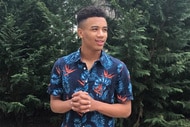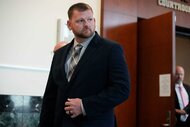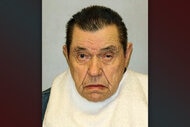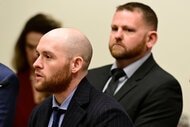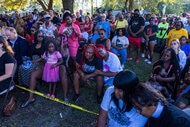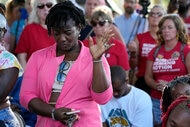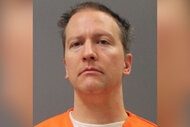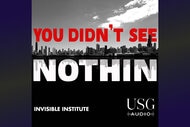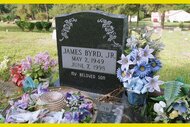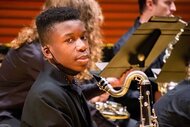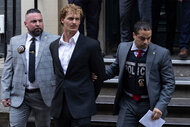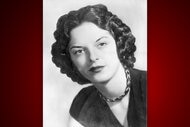Create a free profile to get unlimited access to exclusive videos, breaking news, sweepstakes, and more!
Kyle Rittenhouse Breaks Down Sobbing Soon After Taking The Stand In Murder Trial
Kyle Rittenhouse broke down crying while describing the events that led up to his fatal shooting of two men in Kenosha, Wisconsin.
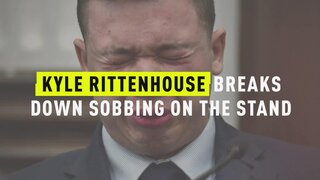
Kyle Rittenhouse broke down in tears on the witness stand at his murder trial Wednesday as he described how he was being pursued by the first man he shot and killed during a night of turbulent protests in Kenosha.
Rittenhouse, now 18, said he was walking toward a Car Source lot with a fire extinguisher to put out a fire when “I hear somebody scream, ‘Burn in hell!’ And I respond with ‘Friendly, friendly, friendly!’”
He said Joseph Rosenbaum was running at him from one side and another protester with a gun in front of him, “and I was cornered.” He said that’s when he began to run.
Rittenhouse began to sob, and the judge called for a break in testimony to allow him to regain his composure.
On a courtroom bench across the room, Rittenhouse’s mother, Wendy Rittenhouse sobbed loudly as she watched her son apparently unable to speak further. Someone sitting next to her put an arm around her.
During his testimony, he said Rosenbaum was holding a chain at one point and twice threatened to kill him that night.
Apologizing to the court for his language, Rittenhouse said Rosenbaum was walking down the street with his chain and screamed, “If I catch any of you (expletives) alone I’m going to (expletive) kill you!”
And later that night, he testified, Rosenbaum said: “I’m going to cut your (expletive) hearts out! Rittenhouse said Rosenbaum also called them “N-words.” But he said he didn’t want to repeat the word in court.
Rittenhouse, who is charged with killing two men during a protest against racial injustice in the summer of 2020, responded no when asked by his attorney whether he came to Kenosha looking for trouble.
The former police youth cadet was 17 when he went to Kenosha with an AR-style semi-automatic rifle and a medical kit in what he has said was an effort to safeguard property from the unrest that broke out over the wounding of a Black man by a white Kenosha police officer.
Rittenhouse appeared composed at first as he gave answers in a matter-of-fact tone to questions from defense attorney Mark Richards.
Rittenhouse testified that he saw videos of violence in downtown Kenosha on Aug. 24, 2020, the day before the shootings, including a brick being thrown at a police officer’s head and cars burning in a Car Source dealership lot.
Rittenhouse said the Car Source owner “was happy we were there” and gave permission for the group to be there.
Rittenhouse’s decision to testify came despite several legal experts saying that an underwhelming prosecution case had made it less likely he would need to do so.
Prosecutors used 5½ days of testimony to try to portray Rittenhouse as the aggressor on the night of the shootings. But the prosecution’s witnesses often bolstered the young man’s claim of self-defense, including his fear that his weapon would be taken away and used against him.
The jurors were sent out of the room just before Rittenhouse began testifying while the judge explained his right to remain silent and the potential risks of testifying, Rittenhouse repeatedly answering that he understood.
As jurors reentered the room, they filed by Rittenhouse on the stand. As Rittenhouse began answering questions, some jurors appeared to take extensive notes on their clipboards.
Rittenhouse could get life in prison if convicted of the most serious charge against him.
Rittenhouse shot and killed 36-year-old Rosenbaum at close range. Then, as members of the crowd set upon him, he killed Anthony Huber, a 26-year-old protester seen on video clubbing Rittenhouse with a skateboard.
Rittenhouse then wounded Gaige Grosskreutz, a 27-year-old protester and volunteer medic who admitted pointing his own gun at Rittenhouse just before he was shot.
While Rittenhouse is white, as were those he shot, the case has stirred debate over vigilantism, the right to bear arms and the unrest that erupted around the U.S. that summer over the killing of George Floyd and other police violence against Black people.
